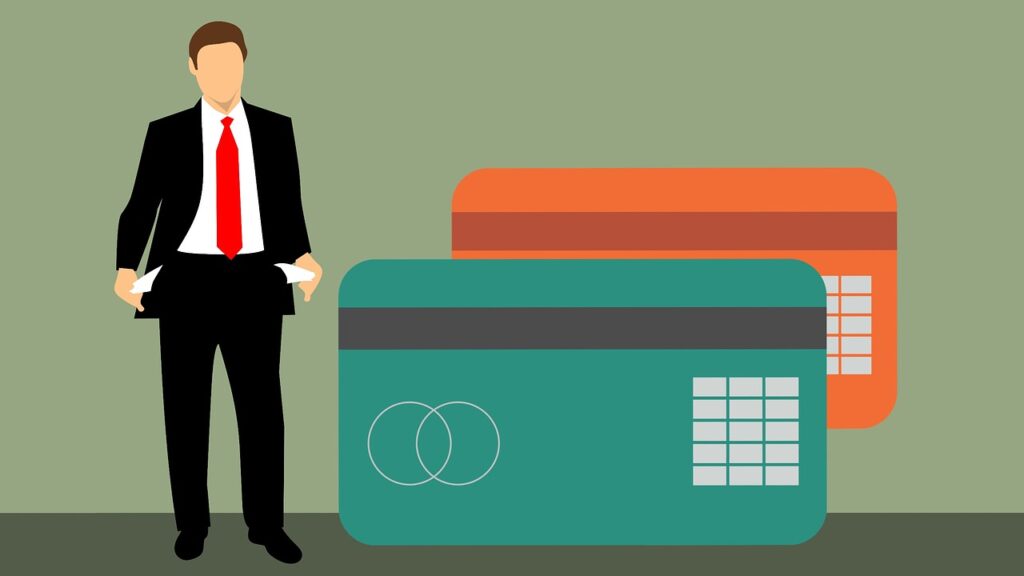“Debt is not a tool; it is a method to make banks wealthy, not you. The borrower truly is a slave to the lender.” — Dave Ramsey
Debt gets a bad rap as far as I’m concerned. We all know the importance of personal financial responsibility, but is it possible that debt could ever be a good thing?
Debt is a four letter word for many people. And it’s not surprising considering the average American has $90,000 of personal debt according to Debt.org. The graph below shows how that debt load breaks out across generational lines. It’s easy to see why many feel like they can’t get out from under this mountain of debt and therefore have come to see debt as an evil that should be avoided at all costs. Financial gurus like Dave Ramsey preach living a no debt lifestyle, and while that approach may work for some it’s important to understand that not all debt is created equally.
Source: Debt.org
The type of debt we have been talking about thus far is consumer debt or personal debts that are owed as a result of purchasing goods that are used for individual or household consumption. In other words this debt equates to loans taken out to finance rapidly depreciating assets or consumable goods; loans for cars, boats, backyard pools or your latest shopping spree. These loans exist to allow us to purchase goods above and beyond what we can presently afford and often charge high and exorbitant interest rates which makes it difficult for consumers to pay them off in a reasonable amount of time. This kind of debt is referred to as “bad debt” because it doesn’t increase your net worth and the goods purchased have no future value.
There is no question that this kind of debt should be considered “bad,” the question is can debt ever be considered “good”?
Good debt is defined as debt used to purchase an asset that will build wealth and generate income. When used the right way this kind of debt is awesome!
Let’s look at an example, using debt to purchase an apartment building.
This is an overly simplified example to demonstrate the power of using good debt to build wealth.
Purchase Price: $1,000,000
Down Payment (20%) $200,000
Debt financed by the bank: $800,000 at 4% interest amortized over 30 years
In this instance you are able to buy an asset worth $1M by using only $200K of your own money. Because this is an income generating asset, you are able to force the appreciation of the asset by increasing rents and/or reducing expenses over time. If you purchased the asset correctly, the rents you collect every month more than cover your mortgage payments!
Now 5 years later, your asset is worth $1.8M and you decide to sell it. See what you did there? After you pay off the remaining principal balance of the debt, you’ve created over $800K in profit. That’s a 4x return on your initial $200K investment. This is the power of leveraging debt wisely! Without the bank loaning you 80% of the purchase price you would not have been able to make it happen.
This is why real estate is one the greatest investments there is, you can use leverage (ie the Bank) to purchase an asset that you would not have been able to with just your own money. Back to the Dave Ramsey quote – in this example did the Bank make money off of you? Yes, absolutely. But did you use that debt as a tool to make yourself wealthy as well? YES!
Look, no hate or shade to Dave. What he and others like him are preaching is personal financial responsibility, which I am all for! Unfortunately, personal finance is not something we are taught in school, and many do not understand the implications that bad debt can have. On the flip side, many also don’t understand how “good debt” truly can be used as a tool to build wealth and income.
This is also not to say that every time you use “good debt” that it will be a slam dunk that will make you wealthy. There is no escaping the personal responsibility we have to understand how we are using our money.
However if you are someone who has always viewed debt as a nasty four letter word, maybe you can start to see the power of leverage and how when used correctly, it can be a tool for personal wealth and financial freedom.

